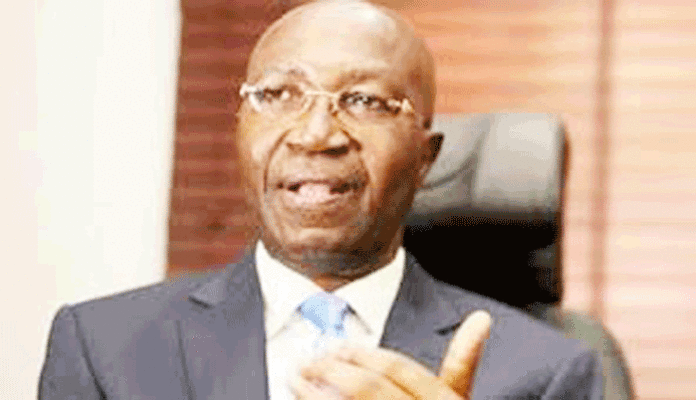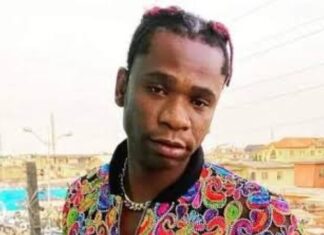INTERVIEW
Chief Wole Olanipekun, SAN, is a former President of the Nigerian Bar Association (NBA). He is also a member of the International Bar Association, and served as a member of its Council between 2002 and 2004. In 2003, he became the Vice President of the Pan-African Lawyers Union (PALU) and was appointed a Life Bencher by the Nigerian Body of Benchers. In this interview, Olanipekun speaks on the Federal Government’s prosecution of the fight against corruption, as well as other related issues. Excerpts:
What is your position on the recommendation that the National Judicial Council (NJC) should be vested with the power to appoint the Attorney-General of the Federation rather than the President?
My reaction is very simple. There are three arms of government: The legislature, the executive and the judiciary. Right from the days of the French philosopher, Montisquie, we have had what we now call division of labour. The appointment of the Attorney General of the Federation, to me, it is not within the jurisdiction of the National Judicial Council. It belongs to the executive arm of government.
How do you react to the way the Economic and Financial Crimes Commission (EFCC) has been prosecuting anti-corruption high profile cases, specifically those involving public officers who served in the immediate past administration? I wouldn’t know the definition of high profile cases. A criminal charge remains a criminal charge, a criminal trial remains a criminal trial. There is no difference between someone who is facing trial for murder or rape and anyone who is facing trial on another crime. The high profile cases that you mentioned, I do not agree that some cases are high profile. I do not agree that some cases are low profile.
Taking a look at EFCC’s prosecution of anti-corruption cases across the country, how do you describe the many counts brought against an accused on a single charge?
There are no specific laws, to the best of my knowledge, guiding or regulating prosecution of corruption and financial crimes. They come within the same purview, within the same Administration of Criminal Justice Act at the Federal level. Like in Lagos, we have the Administration of Criminal Justice Law, Criminal Code, Penal Code and all the procedural and adjectival and substantive laws regulating them. As someone who has defended the accused or defendant in some of these cases, the only thing I see is that the prosecution at the EFCC seems to be biting more than it can chew. It is not compulsory that you have to prosecute for the sake of prosecution or entertaining. To me, there are some of the cases that you can ask the accused to return the money. Some of these cases are not criminal. How can a prosecutor bring 100-count charge against a person, against an accused person, in respect of the same transaction? You keep on repeating yourself; you keep on re-introducing the same ingredients in count one, through to count three, through to count 10, through to 20, through to count 60, in the same subject. You don’t need that because you will need to prove every ingredient of the offence, to prove every count. Even when you have to go to court, they should be as concise as possible. Why don’t you make it brief? Maximum, you can have seven-count charge. You can’t reasonably have a hundred-count charge on the same subject. You are talking of N2 billion from somewhere to somewhere and it becomes a recurring decimal from one charge to another. To me, it is not tidy enough in the EFCC cases. And, again, you don’t expect judges to perform magic or to do your work for you. You don’t also expect the judge to say that, ‘By all means, I am going to convict a person’, because he is docked by the EFCC. It must be decided according to the law. A judge would decide according to law and not according to the noise in the market-place, not justice according to your intention but justice according to the law, the Constitution and based on the counts before the court and also the evidence adduced. Justice cannot be in isolation, it cannot be in a vacuum. There is the danger in this country today because when someone goes to the dock, the next thing is prison. What differentiates human beings from animals is the rule of law. Both parties and sides must be heard. God did not condemn, God did not convict, God did not sentence Adam and Eve in the Garden of Eden without hearing them. The danger of Nigerians wanting any person just to be convicted is that if it is Mr A today, it could be Mr B tomorrow. So we have to be careful.
But the Presidency has accused the judiciary of being its headache in the fight against corruption?
I want to plead with the executive, let us stop saying that the judiciary is the headache of Nigeria. The judiciary is not the headache of Nigeria. Nigeria has many headaches, not just one. Our roads are bad, our children are roaming the streets and nobody is talking about unemployment, people are hungry, people are dying and our hospitals have no drugs. So the judiciary cannot be the headache, we have so many headaches. So far, I will say the Supreme Court is doing well. I want to say that every Nigerian has a right to criticise judges and their judgments, but we don’t have any right to abuse individuals or belittle them. I want to plead that people should ensure that they read a judgment and understand it properly. It is wrong to criticise a judgment you have not seen. When we are criticizing, we should be impartial.
Does this suggest that EFCC counsel lack proper prosecutorial skills? I wouldn’t say so, that would be discourteous. I will not run down my colleagues. There was a time when Mrs Waziri was the Executive Chairman of EFCC, a retreat was organised in Lagos. I was invited to deliver a paper on what would be my advice to their prosecuting counsels. The paper is still there in the EFCC archives. The summary of what I put in the paper is that prosecution is different from entertainment. Prosecution is a serious business, one that needs full concentration and no side attraction. You also have to bear in mind that in prosecution, a citizen’s right may be curtailed, he may be sent to jail or have his property confiscated. The Constitution says that any person who is standing trial or accused of a criminal offence is presumed innocent until the contrary is proved. Accusatorial system is ours here, not inquisitorial. Even when you had Spanish inquisitorial in those days, the burden was still on the accuser to prove the allegation against the accused. When you accuse, you assert. He who asserts must prove. It is bad enough that some people are looting the common wealth.
As economic and financial crimes are being tackled by this government, what role should lawyers play or what should they be doing to protect the rights of citizens?
We are behaving as if economic and financial crimes consume all of us, as if our lives are around it. We are not even talking about how to restructure Nigeria. To me, let lawyers concentrate on how to re-organize this country. We have a centre that is so large, in terms of resources it distributes. Also, lawyers must be free of government and politics for us to make reasonable contribution for the betterment of this country. Lawyers have taken positions; we are not ready to be objective. We have taken positions along political delineations, then we will be subjective in our analysis, ideas will no longer be lofty. Nobody will take us seriously and we are talking of economic crimes. There is decay of value. When we were young, then in school, they used to teach us civics – how to be good ambassadors of the country. Somebody told me that today, we don’t teach history. If we don’t teach history, how will a young boy know about his past? How does he know about the virtues of Awolowo an Azikiwe? Again, another issue that lawyers should address is that we want to see every government in power to always be right, he cannot make mistake. It is not right! Then everybody in power is ‘His Excellency’. Why don’t we teach ourselves morals? The president is ‘His Excellency’; Vice President is ‘His Excellency’, wife of the president ‘Her Excellency’, Senate President ‘His Excellency’. All these make you equate yourself with God, with the omnipotent. Presidents all over the world, they just bear ‘Mr.’ In America, they say ‘President Barrack Obama’ not ‘His Excellency’. There is nothing like that, it is bad coinage. When I was Attorney-General, I had to politely tell my governor, ‘My Governor, you are governor simplicity – that is what the Constitution says’. There is nowhere the adjective or qualification is put.
President Buhari’s government has been accused of witch-hunting the opposition and not sincere with the fight against corruption. What is your view on this?
We should stop fighting corruption. We should nail it. I don’t believe in these postulations. Some people talking of corruption, what were they doing when they were in government? Did they fight corruption? Did they not encourage corruption? We say all hands must be on deck against corruption. So we should not select it.
-Vanguard











